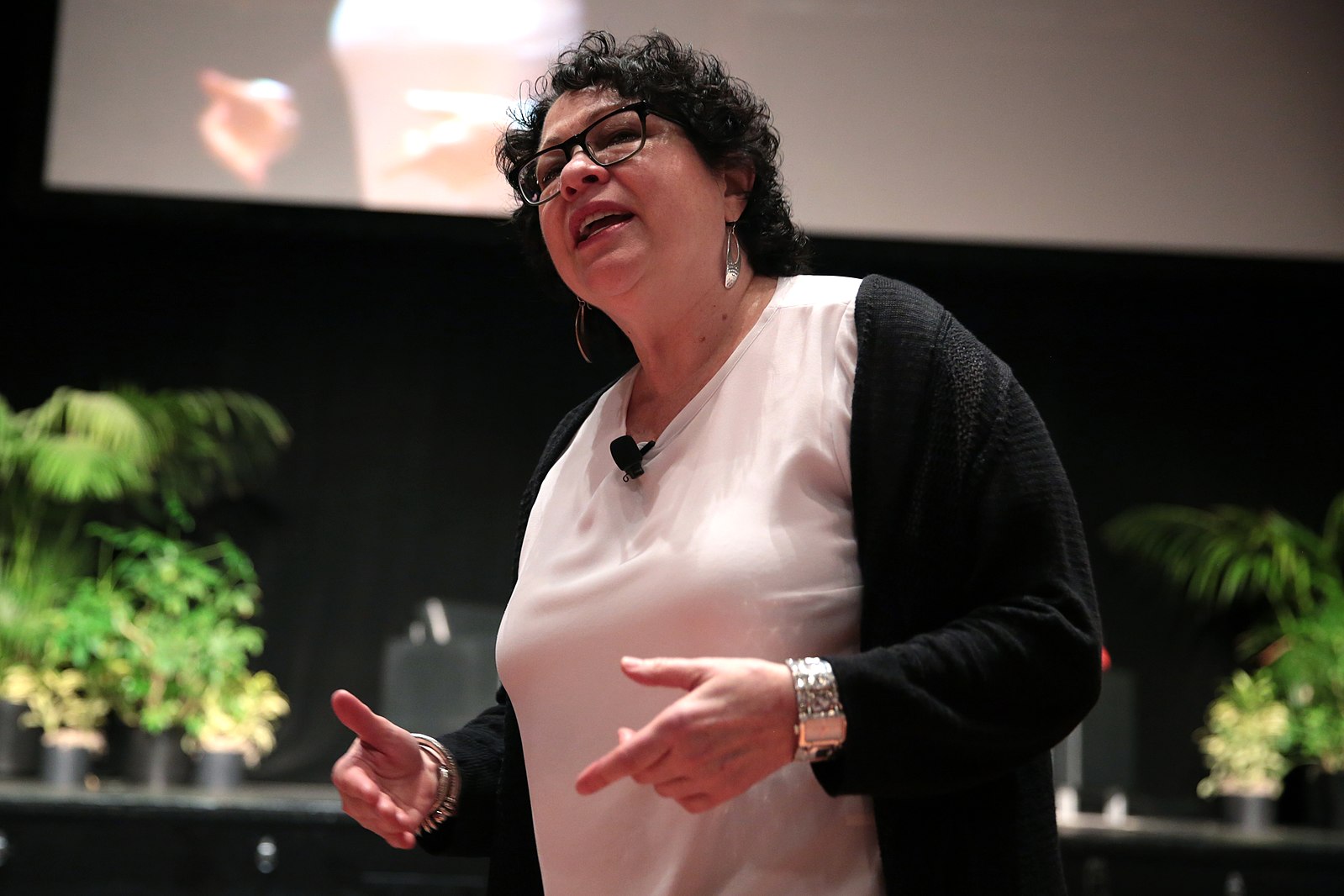(CN) — The U.S. Supreme Court on Monday refused to take up a case brought by a death row inmate who claims Texas prosecutors unfairly kept female jurors off his capital murder jury because of their views on the death penalty, prompting a dissent from Justice Sonia Sotomayor.
In a 7-page dissent in which she was joined by Joe Biden appointee Justice Ketanji Brown Jackson, Sotomayor wrote that the Texas Court of Criminal Appeals failed to conduct an “important side-by-side comparison of struck female jurors against male jurors permitted to serve” in Dillion Gage Compton’s trial for the 2016 killing of correctional officer Mari Ann Johnson.
The Barack Obama appointee said the state gave only one reason for striking all but four women jurors from the 12-person jury: prospective women jurors’ general hesitations about imposing the death penalty.
"A prosecutor may claim that he is striking a woman based on her hesitation to impose the death penalty. When the prosecutor fails to strike a man who has expressed even greater hesitancy, however, it indicates that the woman was struck based on unconstitutional stereotypes about women rather than objective facts," Sotomayor wrote.
The Texas appellate court examined the women’s views on capital punishment “as a group instead of individually," Sotomayor wrote.
“That legal error hid the best indication of discriminatory purpose. Under a side-by-side comparison, it is clear that at least one woman struck by the state had more favorable views on the death penalty than at least one man the state did not strike,” Sotomayor wrote.
In 2023, the Texas appellate court upheld Compton’s conviction and death sentence for strangling and killing Johnson during a lockdown at the French Robertson Unit of the Texas Department of Criminal Justice, where Compton was already serving a 25-year sentence for aggravated sexual assault of a child.
The lower court rejected Compton’s claims that prosecutors unfairly used peremptory strikes against women and minorities during jury selection to ensure a majority white male jury. Compton claimed the prosecution’s use of peremptory strikes based on race, ethnicity and gender violated his Fourteenth Amendment right to equal protection.
Prosecutors used 13 of their 15 peremptory strikes on women.
The Texas court ruled that the state provided a gender-neutral reason for the strikes, finding that each person struck from the jury “expressed more concern, hesitation or opposition to imposing the death penalty than those venirepersons the state chose not to strike.”
In a petition seeking Supreme Court review of the case, attorneys for Compton argued that the state accepted white male jurors whose views on the death penalty were less supportive than the women kept off the jury – at least four of whom Compton said had favorable views on the death penalty.
Sotomayor pointed out that one woman juror who voiced strong support for the death penalty — saying capital punishment was “absolutely justified” and “just and necessary” — was struck from the jury while a male prospective juror was not struck despite saying he thought Texas used the death penalty too often.
“The state defended its views-on-the-death-penalty rationale for each struck woman but never compared their views with those of the men it did not strike. Thus, it did not respond to Compton’s comparative argument that the State had retained men with similar views on the death penalty to the struck women,” Sotomayor wrote.
Attorneys for the Texas Special Prosecution Unit argued in a brief to the high court that the appellate court “meaningfully compare[d] the struck women with the men.”
The justice said she would have tossed out the Texas court’s ruling and sent the case back for another analysis.
“This case illustrates the hazards of analysis by aggregate,” Sotomayor wrote. “The [Texas Court of Criminal Appeals] may have been right that most of the struck women expressed less favorable views on the death penalty than most of the men permitted to serve. When the state, however, extends a reason true of many female potential jurors to another female potential juror not based on what she says, but based on the fact that she is a woman, it crosses the line into invidious discrimination.”
Compton, a Black man, also claimed the state unfairly struck the only two qualified Black prospective jurors as well as a Hispanic man. The jury was made up of 10 white jurors, one Hispanic juror and one juror whose race is unknown.
Jennae Swiergula, a Texas Defender Service attorney representing Compton, did not immediately respond to a request for comment Monday, nor did two members of the Texas Special Prosecution Unit.
Subscribe to Closing Arguments
Sign up for new weekly newsletter Closing Arguments to get the latest about ongoing trials, major litigation and hot cases and rulings in courthouses around the U.S. and the world.









